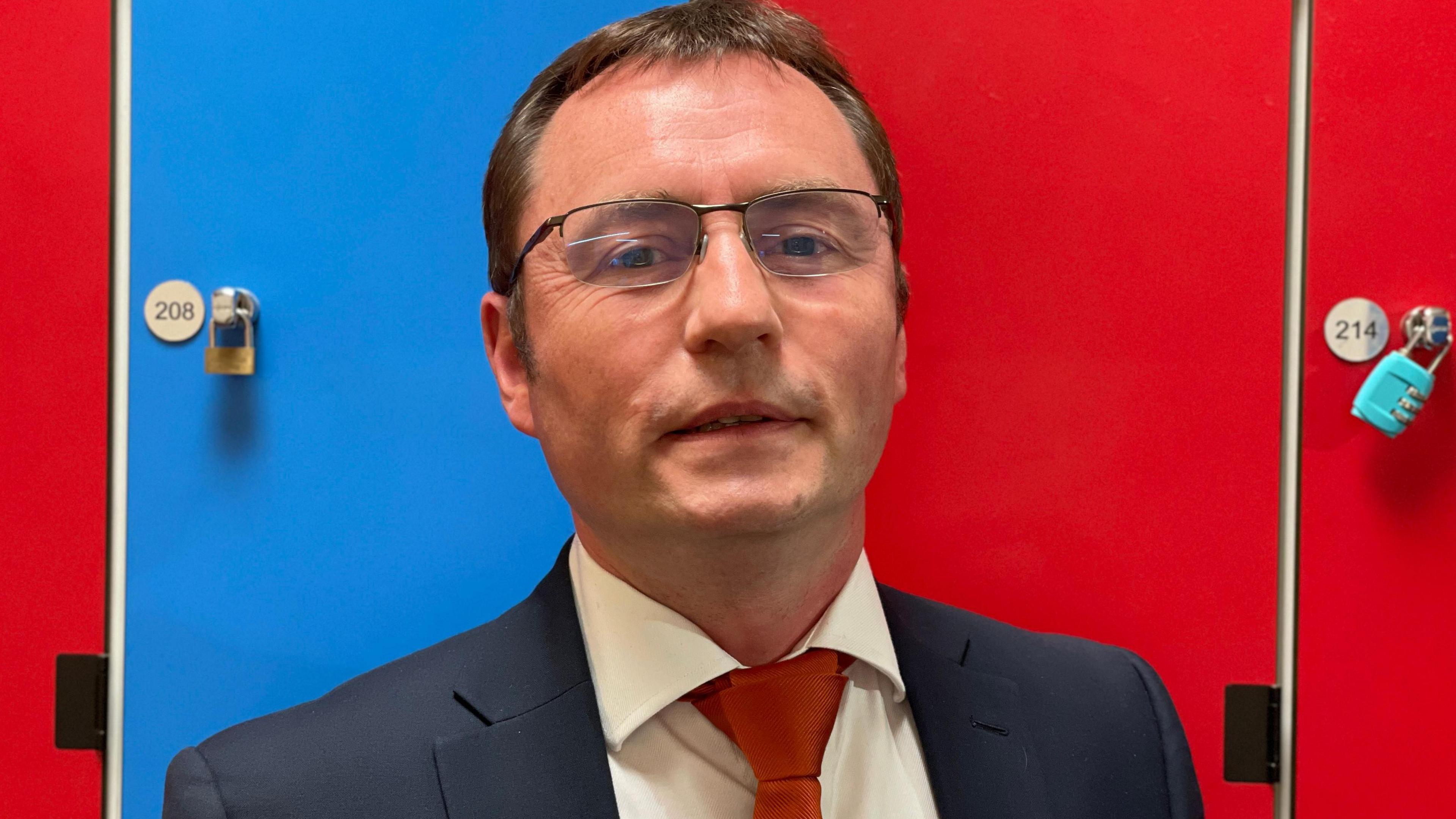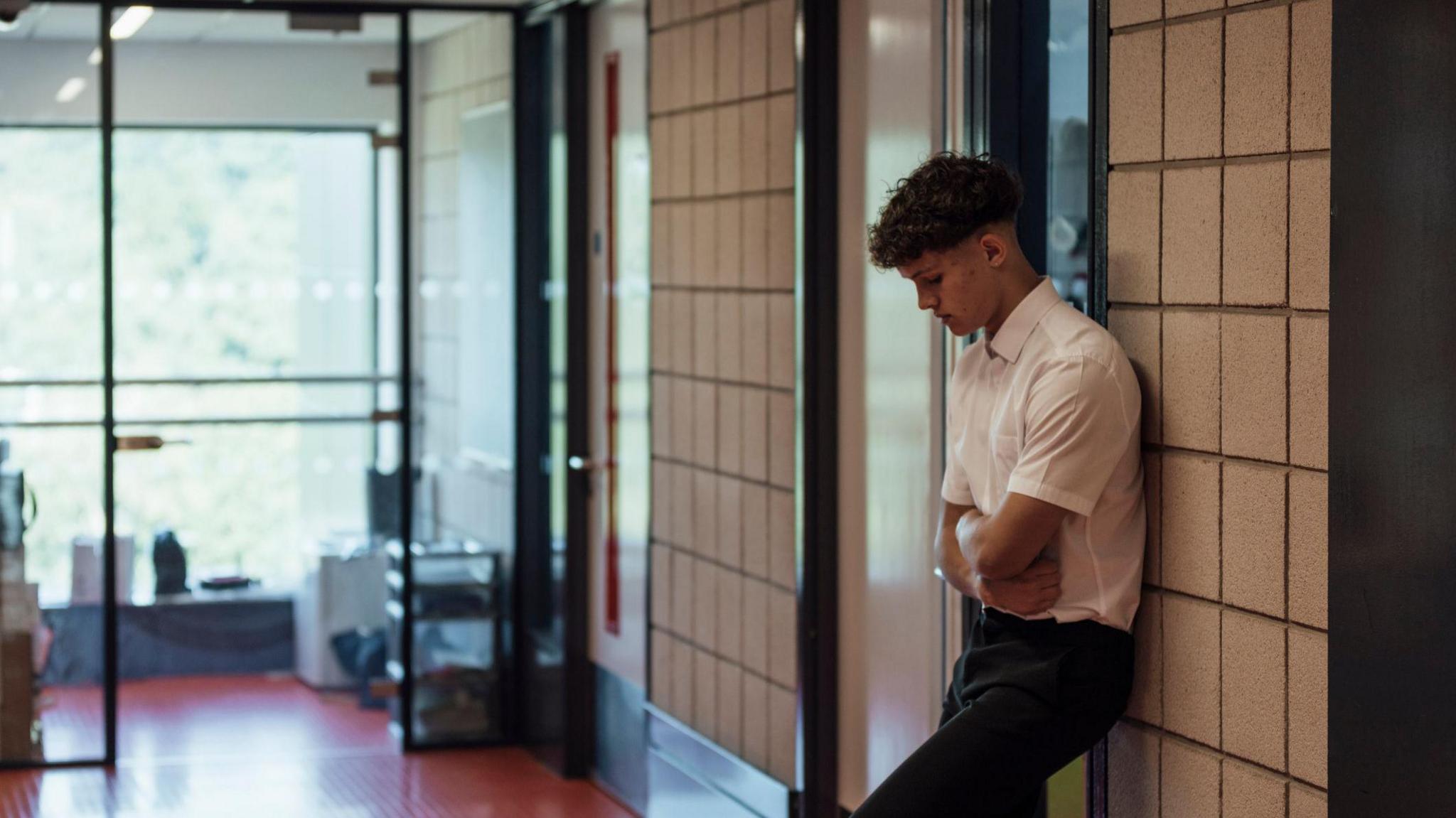'Lack of SEND funding partly behind exclusion rise'

Head teacher Dominic Burke said for some children and families in the country going to school had "become very difficult"
- Published
A lack of funding for pupils with special educational needs is partly behind a rise in exclusions, a headteacher said.
Dominic Burke, head of Balcarras School in Cheltenham, also said lockdowns during the coronavirus pandemic "ruptured" relationships between schools and families which would take "some time restore".
His comments come after a rise in permanent exclusions across the West of England, with 391 in the 2022/23 academic year - up from 304 the previous year.
The Department for Education said the rising number of exclusions put into "sharp focus that too many pupils are being held back by their background".
Figures show nationally there were 780,000 suspensions in 2022/23, while the highest rates in the region are in Somerset and Bristol.
And almost 100 pupils in Somerset were permanently excluded in the academic year whereas in Wiltshire it was just four.
'Precious little funding'
Mr Burke's school has permanently excluded two pupils in the last 12 years.
He told the BBC part of the reason for the low number was the school's efforts to "get everything back the pandemic took" such as engaging children in lessons and extra curricular activities.
But he said more pupils with special educational needs or disabilities were being permanently excluded because of there not being enough money.
"For some children and families, coming to school has not become normal and it's become very difficult," he said.
"There's lots of anxiety around that and sometimes manifests itself into bad behaviour. Fixing that problem is going to take time, and will take money and resource.
"So far we've seen precious little of that."
'Breaking point'
Simon Kidwell, president of the National Association of Head Teachers, said: "Special needs in schools is at breaking point, and access to special school provision is really difficult.
"Access to children's social care, behaviour support and children's mental health are all some of the barriers towards good behaviour in school."
James McNeillie, Ofsted's regional director for the South West, called the rise in permanent exclusions "a real worry".
"They're missing out on the opportunities that being in school gives them. To learn, socialise and importantly to be safe," he said.
"There is variation across the region, and part of that is about access to specialist provision for those young people that need it."
Heather Shearer, Somerset Council's cabinet member for education, said: "The schools, the council our social care systems, even health - we're all aware this is an issue, we're really working hard to work across the system so we can take some of the worry away.
"In some areas we don't have sufficient schools perhaps, or special schools we might need. Sometimes we don't always have the resources in the schools.
"But we're all working together to make that better."
A Department for Education spokesperson added that "our education system is failing to meet the needs of children with additional needs.”
“Every pupil deserves to learn in a safe, calm classroom and we will always support our hard-working and dedicated teachers to make this happen.
“We are also determined to get to grips with the causes of poor behaviour: we’ve already committed to ensuring earlier intervention in mainstream schools for pupils with special needs, providing access to specialist mental health professionals in every school and introducing free breakfast clubs in every primary school," they said.
Get in touch
Tell us which stories we should cover in Gloucestershire
Follow BBC Gloucestershire on Facebook, external, X, external and Instagram, external. Send your story ideas to us on email or via WhatsApp on 0800 313 4630.
Related topics
- Published18 July 2024

- Published27 July 2024
